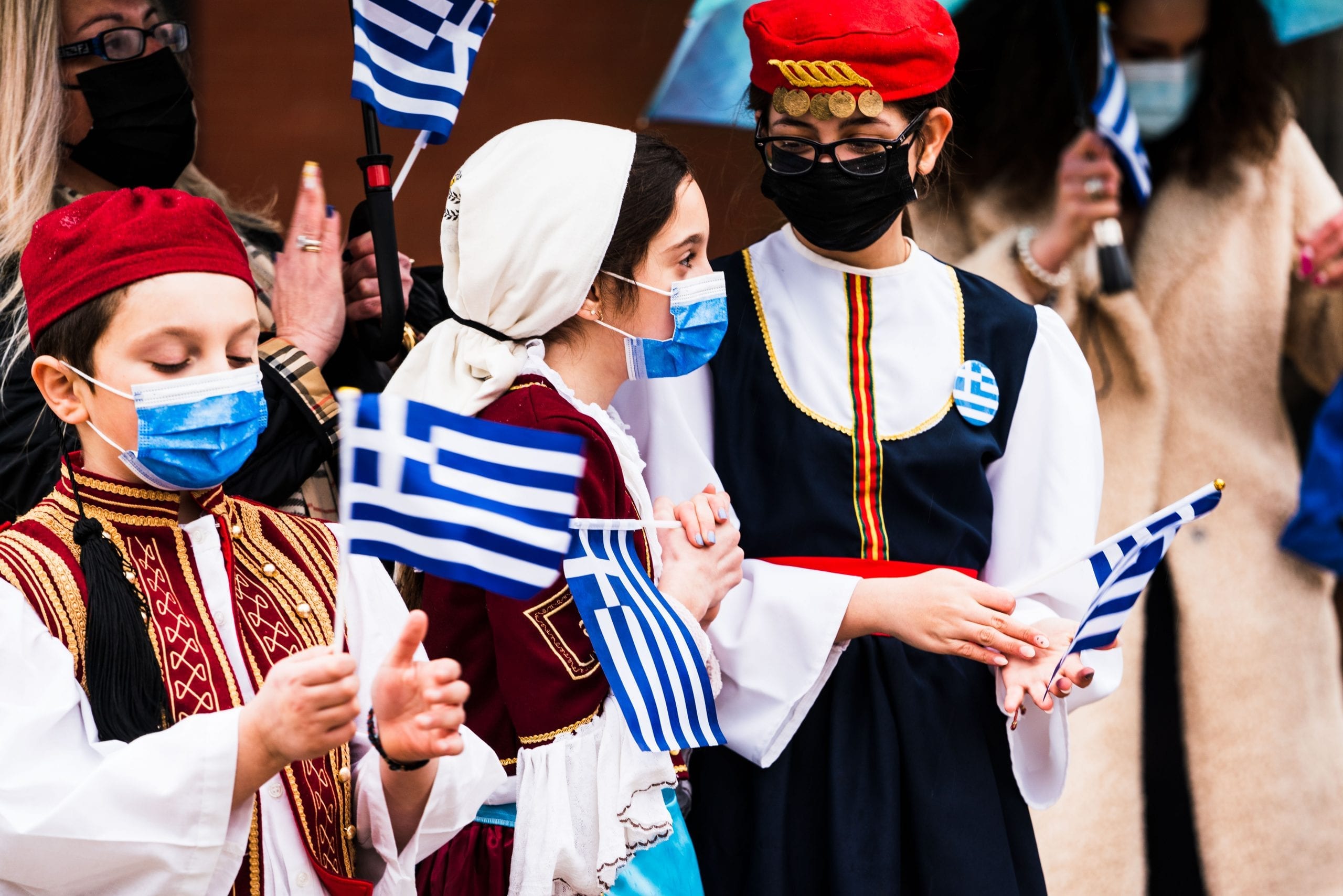PEABODY — While the Irish had their special day Wednesday on St. Patrick’s Day, it was the Greeks’ turn on Thursday.
It was a day of celebration for Peabody’s Greek-American community, which came together to commemorate the 200th anniversary of Greek independence with a flag raising at City Hall.
A small but enthusiastic group gathered for the annual St. Vasilios Greek School flag raising in honor of Greek Independence Day, which is officially celebrated on March 25.
Mayor Ted Bettencourt greeted the crowd and read a proclamation, declaring Thursday as Greek Independence Day in Peabody.
“This is a very important day and we have a tremendous group here,” said Bettencourt. “It’s important for us to keep our traditions going, now I think more than ever. It’s always a very proud day to raise the flag of Greece above City Hall.
“We have had incredible contributions that Greek Americans have made in the city of Peabody and across the country, so this is always a proud moment.”
Ward 3 Councilor James Moutsoulas, who was born in Greece and came to America at the age of three, said, “I am proud of the city’s strong Greek tradition and it is truly an honor to be here today to celebrate a rich tradition.”
St. Vasilios Greek School Principal Dina Kalaitzidis, who coordinated the event, said that even a steady rainfall and a scaled-down celebration due to the pandemic couldn’t spoil the day.
“Obviously, this year has to be different,” she said. “Even with the restrictions, this still is a great day for Greeks to honor their heritage. Having missed it last year, we wanted to keep it alive this year. It’s important to celebrate, especially this year being the 200th anniversary year.”
The program featured three St. Vasilios students dressed in traditional Greek costumes, one of them in what is known as a foustanela, which is the presidential guard uniform.
“It has 400 pleats that symbolize 400 years of slavery prior to independence,” said Kalaitzidis.
Kalaitzidis said the school’s enrollment of 35 students includes second, third and fourth generations, who start at age three and graduate as seventh graders.
Since the onset of the pandemic, the program has been conducted virtually two days a week after school (down from three pre-pandemic) for an hour and a half each day.
“They learn language, culture and religion, but as we have Sunday school at the church, there’s not as much focus on religion,” Kalaitzidis said. “Once they’ve graduated, they can read, write and speak Greek, so it’s nice to see the growth through the years.
“The kids are learning so much as there are no interruptions, so the learning is really taking place this year. I’m pretty impressed with all the kids.”
The school is planning its own celebration later this month. Each student has been assigned a project to commemorate Greek Independence Day and celebrate Greek culture. A video including footage of the flag raising, along with students’ poems and readings, will be posted on church and school social media and websites.
Kalaitzidis, a lifelong Peabody resident, said the importance of learning the Greek language cannot be overstated.
“It’s very important with ties to ethnicity and our roots,” said Kalaitzidis. “It’s so helpful as it helps the kids with science and math and just about everything.”
Greek Independence Day is a national holiday celebrated annually in Greece on March 25. Greece has been a part of the Ottoman Empire since 1453. The holiday commemorates the start of the War of Greek Independence in 1821. The revolt began on March 25 when Bishop Germanos of Patras raised the flag of revolution over the Monastery of Agia Lavra in the Peloponnese. The cry “Freedom or Death” became the motto of the revolution.
The Greek struggle had strong support throughout much of Europe. Many leading intellectuals promoted the Greek cause, including the English poet Lord Byron.
While the Greeks had early success on the battlefield, the fight appeared to be on the verge of failure, prompting the intervention of Great Britain, France, and Russia, which helped bring the conflict to a close in 1829 with the signing of the Treaty of Edirne, which established an independent Greek state.

